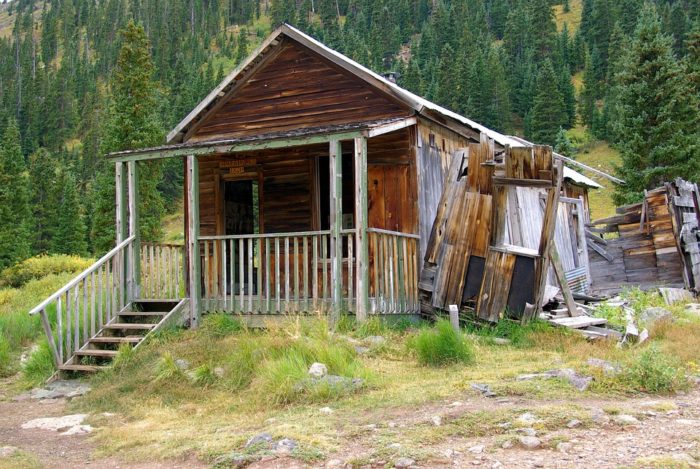อ่านบทความใน The Atlantic ประทับใจจนต้องมาเขียนเก็บลงบล็อก
ไอเดียสำคัญคือเขียนถึงความวุ่นวายสับสนในการรับมือไวรัสของสหรัฐอเมริกาปี 2020 ว่า ไวรัสไม่ได้ทำลายอเมริกา แต่อเมริกาพังอยู่ก่อนแล้ว ไวรัสแค่มาตอกย้ำให้เห็นชัดๆ ว่ามันพังต่างหาก
We Are Living in a Failed State
The coronavirus didn’t break America. It revealed what was already broken.
บทความนี้เป็นตัวอย่างของงานเขียนที่ดี ใช้ภาษายากไปนิดนึง (ต้องเปิดดิคหลายคำ) แต่เป็นการนำเสนอไอเดียที่ชัดเจน ร้อยเรียงกันมาอย่างดี
อเมริกาพังอย่างไรบ้าง มีปัญหาทั้งการเมือง เศรษฐกิจ สังคม และระบบราชการ
When the virus came here, it found a country with serious underlying conditions, and it exploited them ruthlessly. Chronic ills—a corrupt political class, a sclerotic bureaucracy, a heartless economy, a divided and distracted public—had gone untreated for years.
มิหนำซ้ำ ชนชั้นปกครอง ก็ยิ่งเอาเปรียบในช่วงสถานการณ์วิกฤต (เอ๊ะ คุ้นๆ)
A few senators and corporate executives acted quickly—not to prevent the coming disaster, but to profit from it. When a government doctor tried to warn the public of the danger, the White House took the mic and politicized the message.
กลไกรัฐไม่ฟังก์ชัน นับเป็น failed state ตามชื่อบทความ
Every morning in the endless month of March, Americans woke up to find themselves citizens of a failed state. With no national plan—no coherent instructions at all—families, schools, and offices were left to decide on their own whether to shut down and take shelter.
อุปกรณ์ป้องกันตัว ชุดทดสอบไม่เพียงพอ ประชาชนต้องเย็บกันเอง (เอ๊ะ คุ้นๆ)
When test kits, masks, gowns, and ventilators were found to be in desperately short supply, governors pleaded for them from the White House, which stalled, then called on private enterprise, which couldn’t deliver. States and cities were forced into bidding wars that left them prey to price gouging and corporate profiteering. Civilians took out their sewing machines to try to keep ill-equipped hospital workers healthy and their patients alive.
ประเทศที่รวยที่สุดในโลก ต้องมา “ขอทาน” จากประเทศอื่นๆ
Russia, Taiwan, and the United Nations sent humanitarian aid to the world’s richest power—a beggar nation in utter chaos.
บทความชี้ว่า ในศตวรรษที่ 21 เริ่มต้นมาได้ 20 ปี อเมริกาเจอวิกฤตใหญ่ 3 รอบคือ
- 9/11
- Financial Crisis
- COVID-19
(เพิ่งสังเกตว่าทุกวิกฤตเกิดขึ้นในรัฐบาลรีพับลิกันแฮะ)
กรณีของ 9/11 ทำให้คนทั้งประเทศรวมใจเป็นหนึ่งได้ เราเห็นนักดับเพลิงจากต่างรัฐขับรถเป็นพันกิโลมาช่วยนิวยอร์ก แต่หลังจากนั้นพอมีสงครามอิรัก อเมริกาก็เริ่มแตกแยก
พอมาถึง 2008 Financial Crisis ที่อยู่ในช่วงรอยต่อของรัฐบาลบุชกับรัฐบาลโอบามา ทั้งสองรัฐบาลก็ร่วมมือกัน และ “อุ้ม” สถาบันการเงินไม่ให้ล้มละลายจนเกิดวิกฤตเศรษฐกิจเป็นวงกว้าง แต่ความเสียหายจากปี 2008 ก็ส่งผลให้ความเหลื่อมล้ำของอเมริกายิ่งถ่างออก เพราะคนรวยถูกอุ้ม แต่คนจนเสียหายหนัก
All of the lasting pain was felt in the middle and at the bottom, by Americans who had taken on debt and lost their jobs, homes, and retirement savings. Many of them never recovered, and young people who came of age in the Great Recession are doomed to be poorer than their parents. Inequality—the fundamental, relentless force in American life since the late 1970s—grew worse.
มาตรการต่างๆ ของรัฐบาลโอบามาไม่สามารถแก้ปัญหาช่องว่างนี้ได้ และกลายเป็นโอกาสของ Donald Trump ที่ใช้จังหวะนี้ขี่กระแสของการต่อต้านนักการเมืองแบบเดิม และผสานพันธมิตรกับนักการเมืองรีพับลิกันเดิม (ที่ตอนแรกเกลียดกัน แต่สุดท้ายหาจุดร่วมกันได้)
Trump came to power as the repudiation of the Republican establishment. But the conservative political class and the new leader soon reached an understanding. Whatever their differences on issues like trade and immigration, they shared a basic goal: to strip-mine public assets for the benefit of private interests. Republican politicians and donors who wanted government to do as little as possible for the common good could live happily with a regime that barely knew how to govern at all, and they made themselves Trump’s footmen.
การบริหารงานแบบ Trump ยิ่งทำให้รัฐบาลกลางอ่อนแอ สภาพการณ์ของอเมริกาก่อนเจอไวรัสคือ
- ในเมือง แรงงานนั่งโต๊ะ ต้องพึ่งพาอาศัยแรงงานบริการ (service workers) ที่มองไม่ค่อยเห็น
- ในชนบท ชุมชนเสื่อมโทรมลง และต่อต้านโลกยุคใหม่
- ในโลกโซเชียล ผู้สนับสนุนการเมืองสองขั้วด่ากันไม่รู้จบ
- ในโลกเศรษฐกิจ ช่องว่างยิ่งถ่างระหว่างทุนนิยมยักษ์ใหญ่ และแรงงานที่โดนเอาเปรียบ
- ในวอชิงตัน รัฐบาลที่ว่างเปล่า แต่นำโดย “โจร” (ต้นฉบับใช้คำว่า con man แต่คิดว่ามันคือการด่า “โจร” เนี่ยแหละ)
- ทั่วประเทศ ทุกคนเหนื่อยล้า มองไม่เห็นอนาคตเบื้องหน้าร่วมกัน
ย่อหน้านี้ถ้าตัดคำว่า “อเมริกา” กับ “วอชิงตัน” ออก ก็ใช้กับบริบทไทยได้เป๊ะๆ 100%
This was the American landscape that lay open to the virus: in prosperous cities, a class of globally connected desk workers dependent on a class of precarious and invisible service workers; in the countryside, decaying communities in revolt against the modern world; on social media, mutual hatred and endless vituperation among different camps; in the economy, even with full employment, a large and growing gap between triumphant capital and beleaguered labor; in Washington, an empty government led by a con man and his intellectually bankrupt party; around the country, a mood of cynical exhaustion, with no vision of a shared identity or future.
ยังโชคดีว่าอเมริกาเป็นประเทศที่ประชาธิปไตยเข้มแข็ง ผู้เขียนเสนอว่าทางออกของเรื่องนี้คือ เรียนรู้จากความเจ็บปวด หมดไวรัสแล้วไปเลือกตั้งเอารัฐบาลนี้ออกไป ส่วนการแก้ปัญหาระยะยาวจะทำอย่างไรนั้นก็ไม่ได้เสนอไว้
หมายเหตุ: บทความคล้ายๆ กันใน Bangkok Post แต่เป็นบริบทของเมืองไทย
ภาพจาก Pixabay


